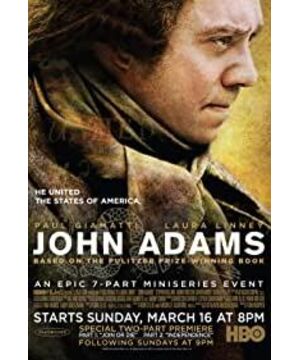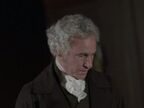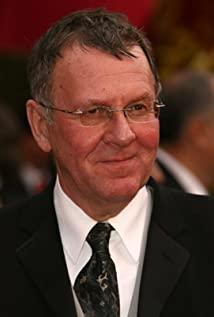HBO's music is as majestic and magnificent as ever, and I never tire of listening to it.
The play selects the most famous "Boston Massacre" in Adams' legal career and kicked off the prelude of Adams' life. His brilliant defense of the British soldiers earned him a sensible reputation, the trust and favor of the Anglophiles, and the resentment of the colonial public. His original intention was to establish a just and selfless reputation for the rude and rude colonies in the eyes of the United Kingdom, in order to win the attention and attention of the British royal family to the colonies. A few years later, the shooting in Lexington fired the first shot of the Revolutionary War and shattered Adams' last hope for the British side. He plunged quickly and enthusiastically into the cause of the independent revolution.
It has to be said that Adams, as the head of the War Council, is quite knowledgeable and responsible. He proposed Washington, who was always high profile in the crowd, as commander-in-chief of the Continental Army. It was he who suggested Jefferson draft the Declaration of Independence, saying that Jefferson's literary talent made him ashamed. Interestingly, the growing fame of both men later made him jealous. Yes, when it comes to the merits of the Revolutionary War, Adams is an important figure that cannot be avoided. It was he who single-handedly debated the crowd at the Continental Congress and managed to win the consensus that the 13 American colonies must secede from Britain. It was also him who went to the front to understand the military situation and did his best to call for the replenishment of the army and the delivery of food, bullets and supplies at the Continental Congress. It was him who "linked" together the 13 separate colonies with difficulty.
Adams's ambassadorial career was not satisfactory, and the first loan of 5 million guilders from ABN AMRO was the glory of his ambassadorial career. Franklin criticized him for being too outspoken, saying that his character was not suitable for France and would be more popular in England. So he later became the first American ambassador to Britain. However, as in France, England's rambunctious manners, smirks, and hostility plunged him into deep depression and weariness. At the same time, the idea of monarchy also drifted into his mind.
Speaking of which, Adams was really unlucky. Because he disliked the title of the top head of the new federal government as not flamboyant enough, he proposed to call him "His Majesty the President", "His Royal Highness the President" or "His Excellency the Supreme Commander". Everyone thought he was crazy and had a dangerous tendency to autocratic monarchy, which led to The "Vice President" has become the least important position, and can only listen to everyone's rhetoric without expressing any opinions. The only effect is to cast his holy and decisive vote when the votes are deadlocked. Oh, and just in case the president goes off the bench. It was torture for Adams, who was born to argue several times a day, and he complained about it. After eight years, he finally welcomed himself as president. He also managed to keep all the Washington cabinet staff, all of whom were Hamilton's henchmen (I guess he secretly admired Hamilton's ability to manipulate votes). This led to the uncooperativeness of his Vice President Jefferson. When the Franco-British War broke out, the new French government adopted an unfriendly policy towards the United States because of the Jay Treaty concluded in Washington, which intensified the dispute between Hamilton and Jefferson. The famous XYZ incident caused Adams to lose the trust of both parties at the same time. During that time, he resisted the pressure and stalled to create an opportunity for a reconciliation with France. It was later proved that Adams' decision was correct this time. Adams fired Hamilton's cronies from the cabinet out of shamelessness and fed up with Hamilton's invisible insult, which angered Hamilton and caused him to lose his re-election as president.
Adams and Jefferson's friendship began when the two simultaneously traveled to France to secure a French alliance for the United States. After the founding of the People's Republic of China, the two belonged to different parties because of their different political views. But their differences were beginning to emerge in France. Jefferson declared that he "wanted any constitutional document to come from the same eclectic will as our Declaration of Independence." He believed that the world belonged to all living beings. A country shouts three and four." Adams believes that the government is first to solve social contradictions, and the constitution is to "establish a long-term, stable and sustainable legal foundation". Jefferson, however, was concerned that "the inevitable inadequacies of the revolution will stimulate the momentum of reactionary forces". Adams also admitted that he did not believe "in himself and his countrymen" and believed that "the people need someone to lead." In this play, Washington's image is surprising. He is tall but does not have Washington's vigorous temperament after all. But the most surprising thing is Franklin, who is simply a wicked and slippery man. This time, however, he made it reasonable and convincing. He advised the two of them: "We have built our country on dissent. To prove Mr Dickinson and others wrong, we can't be a mess until we beat our opponents. We've built a republic, and we have to keep it. complete."
The most clichéd phrase "behind every successful man there is always a woman" is a true portrayal of Adams' marriage cigarette. More than ten years before their marriage, they got together less and separated more, and Abigail alone took up the heavy responsibility of raising children and running a farm, so that he had no worries. Little Adams is the pride of their husband and wife and the public's affirmation of Adams. In the growth process of little Adams, Abigail's crucial persistence is admirable. It was she who reminded Adams at the Continental Congress to "remember the ladies." She was also a staunch anti-slavery, and she had to talk about it with Washington. Abigail was wise. She was Adams' friend, his confidant, his cabinet, and his backing of steadfastness. Adams was so fortunate that even Jefferson envied him.
With the help of Dr. Rush, Adams and Jefferson resumed their friendship in their later years and began frequent correspondence. Rush said he and Jefferson were "the north and south poles of the revolution, who truly abandoned personal preconceptions and dedicated themselves to the United States." There are not many letters in the play that disclose their later years, but it is enough to see that they are all exerting their residual enthusiasm for that era. Jefferson was busy and dedicated to education, Adams was eager to say that Li Chuan was trying to leave a true history (in fact, he wanted to occupy an important place in history). Coincidentally, they died on the same day. The natural lives of the two great men are over, but their minds will continue to tear the shaky soul of America.
View more about John Adams reviews











